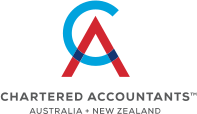Too many young medical professionals in Australia are living paycheck to paycheck with virtually nothing to set aside for the future. Medical financial adviser and accountant Kym Nitschke discusses some budgeting tips for young doctors and registrars who want to take control of their wealth.
Your studies are over and it’s time to start spending those beautiful wages. After all, those days of scrimping and scrounging while you studied full-time are over.
Wait. Before you get carried away with spending, don’t forget why it’s crucial to have a budget.
Having a budget in place will allow you to meet your financial goals sooner rather than later. In fact, not having a budget could put your finances at the mercy of random circumstance and you’ll never reach your wealth dreams.
‘Budget’ isn’t a bad word. It doesn’t mean a life of self-deprivation. Budgeting means spending your money wisely so that you remain in full control of it at all times. Setting a budget will enable you to pay off debt, save for the future and grow your wealth.
Here are some key tips that will help you set and stick to a budget.
Understand Your Current Financial Situation
You can’t set up a successful budget until you know what you have to work with. Take stock of your net income including your salary, returns on investments, rent paid to you or any other regular income streams you have coming in. Write down the total as a monthly or fortnightly budget you have to work with.
Determine Where Your Money Is Going Right Now
You might wonder where all your funds have been running away to. By carefully tracking your expenditures over the course of a week, month or several months, you can figure out whether or not you are living within your means. Ideally, you want to see something leftover from your monthly income after you spend it. If you are spending more than you earn, then it’s definitely time to focus on your budget. If you do have some cash remaining after your monthly expenses are all accounted for, then budgeting will help you stay on-track and gradually build your wealth.
After establishing your current expenses vs income, you’ll be ready for the next step.
Establish Your Priorities
Out of all the purchases and payments you made over the past month or so, which would you say are absolutely necessary?
It’s hard to say ‘no’ to certain conveniences and items once they’ve become a regular part of your daily life. However, now is the time when you want to look for any and all areas you can cut back your spending. The more money you can save, the greater control you’ll have over your finances.
Some expenses are fixed and non-negotiable. These may include:
– Rent or mortgage payments
– Insurance payments
– Vehicle payments
– Student loan payments
Other expenses, such as fuel for your automobile and weekly groceries, are highly variable. This means they are areas that fluctuate with the circumstances. You also tend to have some control over these aspects.
Make a list of the fixed expenses you have every month or fortnight. Track the amounts you spend on the variable items and determine the average amount you typically need for those things. Add in the costs of a few ‘non-necessities’ as well. These can include room in your budget for outings and holidays, golf trips and boating, new clothes, gifts for your kids—anything you want.
The point is to itemise all possible expenses you may have and then set a limit to meet those needs.
Set Goals for the Future
Budgeting frees up more of your hard-earned income to go to savings, retirement or investing. Take some time to think seriously about what your financial goals are: do you want to buy your first home? Start a savings funds for your children? Invest in the property market?
Set a deadline at which you hope to meet each financial goal. Next, determine how much you should be setting aside each month to meet your goal at the predetermined time. Include this amount in your budget each month.
Put It Down in Writing
With all of your income, expenses and savings figures in hand, it’s time to put them down on paper and balance them out.
As we mentioned earlier, ask yourself a few questions as you examine the results: Are you spending more than you earn? Cut out a few expenses. Do you have something left over at the end of each month? Look for ways to increase that margin so that you have more to save.
You don’t have to call this a budget if you don’t like the sound of that word. Just look at this as your ‘spending plan.’ There’s no shame in having a plan for how you want to spend your money, however. It’s actually the most basic and smartest financial move that many people don’t even consider.
Treat Yourself
Your budget shouldn’t mean that you deny yourself every joy in life. If you have more leftover than you expected at the end of each month, you can use that money however your heart desires and reward yourself for your self-discipline.
If you can, create an expense line in your budget for entertainment, to give yourself room for fun – but with some control!
A budget is an empowering thing even for high-income earners like doctors! A budget will help you to maintain balance and eliminate stress in your personal life. This will not only give you greater financial freedom but it will also enable you to practice at full capacity in your profession.
Take your wealth to the next level
Even if you’re early in your career, it is never too soon so get expert advice. An experienced medical accountant and financial planner will help set you up for the now, and the future.
Nitschke Nancarrow specialise in financial and accounting services for medical professionals. They know what works, and they know the opportunities available to help you build wealth.
Contact Nitschke Nancarrow managing partner Kym Nitschke for a free initial discussion about your situation. Call us on (08) 8379 9950 or send me an email.
– Kym Nitschke
The information contained on this web site is general in nature and does not take into account your personal situation. You should consider whether the information is appropriate to your needs, and where appropriate, seek professional advice from a financial adviser.
Taxation, legal and other matters referred to on this website are of a general nature only and are based on Nitschke Nancarrow’s interpretation of laws existing at the time and should not be relied upon in place of appropriate professional advice. Those laws may change from time to time.
Nitschke Nancarrow specialises in accounting, tax and financial advice for superannuation. Contact us now for a no obligations discussion about your needs.














